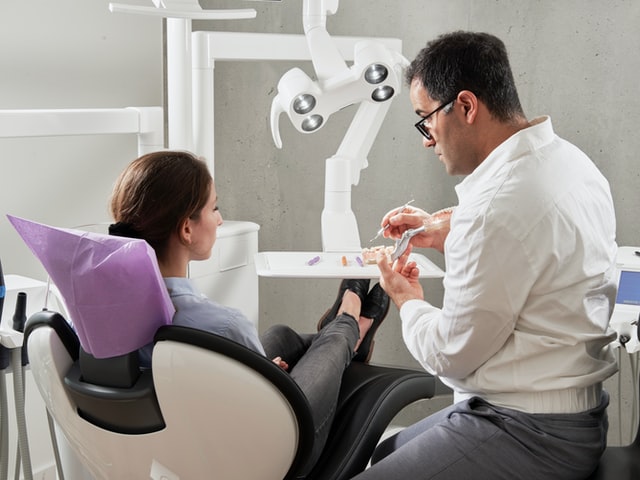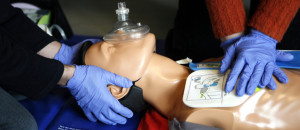Posted by Brenda Berdahl on Apr 30, 2021 in CPR Regulations
Those in the Dental industry likely already know that the Colorado Dental Board has strict requirements regarding a practitioners ability to perform CPR—this blog post is intended to clear up any lingering questions you may have, as well as provide you with any additional information you may need.
As a Dentist or Dental Hygienist, you’re required to have at least 30 hours of continuing education every two years. The good news is that up to 2 hours of the time you spend at a BLS (Basic Life Support) course here at CooL Compressions CPR will count toward your continuing education requirement!
We’ll begin by briefly reviewing the Colorado Dental Practice Act. Then, we’ll take a closer look at the BLS/CPR requirements, and finally, we’ll wrap up by telling you everything you need to know about fulfilling these requirements at CooL Compressions CPR (don’t worry—we make it easy!).
Let’s dive in:
Dental Professionals, Here’s What You need to Know About the Colorado Dental Practice Act
The Colorado Dental Practice Act is a series of regulations designed to protect practitioners and the general public. Regularly reviewing the Dental Practice Act is a great way to make sure that you’re always remaining compliant with state law. Having a thorough understanding of the legal guidelines outlined in the act can protect both you and your patients.
The Dental Practice Act occasionally receives changes or updates (e.g., in the form of additional permanent rules or emergency rules). You can keep up to date with these changes by subscribing to email notifications through this Colorado Secretary of State page and selecting the Colorado Dental Board option.
What Kind of CPR/BLS and AED Certification Requirements Does the Dental Practice Act in Colorado Demand?
While as a practicing dental professional you probably already know them, let’s refresh ourselves and quickly break down some of these acronyms flying around:
- CPR: Cardiopulmonary Resuscitation
- BLS: Basic Life Support
- AED: Automated External Defibrillators
Basic Life Support training prepares you, as a healthcare provider, to be capable of assisting another person of any age experiencing cardiac arrest, difficulty breathing, or who has an obstruction in their airway. You will learn (or have already learned) how to perform CPR and to use an AED, among gaining other critical skills.
It’s easy to get swept up by the “paperwork” and bureaucracy of these requirements, but it’s important to remember that these are quite literally life saving skills—when a person collapses, if CPR and the use of an AED are used quickly enough, studies have indicated that doing so can increase the patient’s chances of survival by up to 35%.
As laid out by the Colorado Dental Board, Dentists and Dental Hygienists must receive their training in accordance to the following guidelines:
- Initial training shall include a minimum of three (3) hours of training, including skills practice and skills testing.
- Renewal courses shall include a minimum of two (2) hours of training, including skills practice and testing.
In other words, if you’ve never taken a BLS/CPR course before, or your certification has expired, you’re required to take an initial training course. If you already have your certifications, you’re required to have them renewed every two years. Renewal courses are shorter and cost a bit less than the full/initial course, so it’s advisable to always renew on time whenever possible.
How to Become CPR/BLS and AED Certified at a Healthcare Provider Level in Colorado
The Colorado Dental Board requires that Dentists and Dental Hygienists receive their CPR/BLS and AED certification at a “healthcare provider” level—meaning that some community or lower education courses may not apply.
The board says that:
“Basic Life Support (BLS) training courses shall be consistent with the most current science and treatment recommendations from the International Liaison Committee on Resuscitation (ILCOR). Consensus on Science and Treatment Recommendations (CoSTR), and the American Heart Association Guidelines for CPR and Emergency Cardiovascular Care (ECC).”
This is the kind of training we provide here at Cool Compressions CPR. We have worked with countless healthcare providers throughout the state—alongside families, educators, and hundreds if not thousands of other interested parties—and we only provide the highest quality training designed to not only meet your certification requirements, but to provide you with life saving skills.
What’s it Like Taking a Certification Course at CooL Compressions CPR?
Taking a course at CooL Compressions CPR is easy. First, determine whether you need to take the full BLS course (i.e., you’ve never taken the course before or your current certification has expired) or you need to attend a renewal course.
Next, visit our easy Training Schedule page and find a date and time that works for you. Click on the course you want to attend, review the information presented to you on the new page to be sure everything is correct, and then click “Save Your Seat.”
We use the phrase save your seat because it’s quite accurate—these courses can fill up quickly, so the sooner you reserve your spot in the class, the better. Courses tend to sell out more toward the end of the month, especially renewals, so if you’re racing against the clock it’s best not to delay.
We’re Here to Help You Help Others With Life Saving Skills
Did you know that CooL Compressions CPR offers same-day certifications?
This time-saving benefit of attending a course with us means that you won’t have to wait for your certifications to be mailed to you. If you need your certification immediately, such as to provide to your employer to show that your requirements are being met, this can be a massive help, and we’re so happy to be able to provide it to our students.
If you’re ready to reserve your seat in a course now, please visit our Training Schedule. Otherwise, if you have any questions, you’re more than welcome to call us at 720-609-2972.


